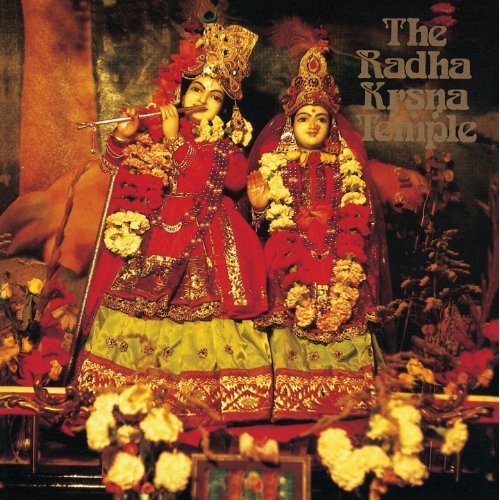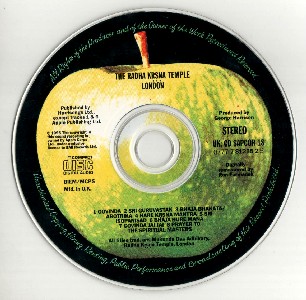Today we celebrate the Appearance day of Lord Sri Nityananda with a song composed by Narottama das Thakura entitled “Nitai-pada-kamala”, followed by a purport by His Divine Grace A. C. Bhaktivedanta Swami Prabhupada given January 31, 1969.
“If you are anxious to go back to home, back to Godhead, and become associate with Rādhā and Kṛṣṇa, then the best policy is to take shelter of Nityānanda.” (from purport to song)
Manaḥ-śikṣā (Nitāi-pada-kamala)
from Prārthanā by Śrīla Narottama dāsa Ṭhākura
nitāi-pada-kamala, koṭi-candra-suśītala,
je chāyāy jagata jurāy
heno nitāi bine bhāi, rādhā-kṛṣṇa pāite nāi,
dṛḍha kori’ dharo nitāir pāy
“The lotus feet of Lord Nityānanda are a shelter where one will get the soothing moonlight not only of one, but of millions of moons. If the world wants to have real peace, it should take shelter of Lord Nityānanda. Unless one takes shelter under the shade of the lotus feet of Lord Nityānanda, it will be very difficult for him to approach Rādhā-Kṛṣṇa. If one actually wants to enter into the dancing party of Rādhā-Kṛṣṇa, he must firmly catch hold of the lotus feet of Lord Nityānanda.”
se sambandha nāhi jā’r, bṛthā janma gelo tā’r,
sei paśu boro durācār
nitāi nā bolilo mukhe, majilo saṁsāra-sukhe,
vidyā-kule ki koribe tār
“Anyone who has not established his relationship with Nityānanda Prabhu is understood to have spoiled his valuable human birth. Such a human being is actually an uncontrollable animal. Because he never uttered the holy name of Nityānanda, he has become merged into so-called material happiness. What can his useless education and family tradition do to help him?”
ahaṅkāre matta hoiyā, nitāi-pada pāsariyā,
asatyere satya kori māni
nitāiyer koruṇā habe, braje rādhā-kṛṣṇa pābe,
dharo nitāi-caraṇa du’khāni
“Being maddened after false prestige and identification with the body, one is thinking, Oh, what is Nityānanda? What can He do for me? I don’t care. The result is that he is accepting something false to be truth. If you actually want to approach the association of Rādhā-Kṛṣṇa, you must first achieve the mercy of Lord Nityānanda. When He is merciful toward you, then you will be able to approach Rādhā-Kṛṣṇa. Therefore you should firmly grasp the lotus feet of Lord Nityānanda.”
nitāiyer caraṇa satya, tāṅhāra sevaka nitya,
nitāi-pada sadā koro āśā
narottama boro dukhī, nitāi more koro sukhī,
rākho rāṅgā-caraṇera pāśa
“The lotus feet of Nityānanda are not illusion; they are a fact. One who engages in the transcendental loving service of Nityānanda is also transcendental. Always try to catch the lotus feet of Lord Nityānanda. This Narottama dāsa is very unhappy, therefore I am praying to Lord Nityānanda to make me happy. My dear Lord, please keep me close to Your lotus feet.”












